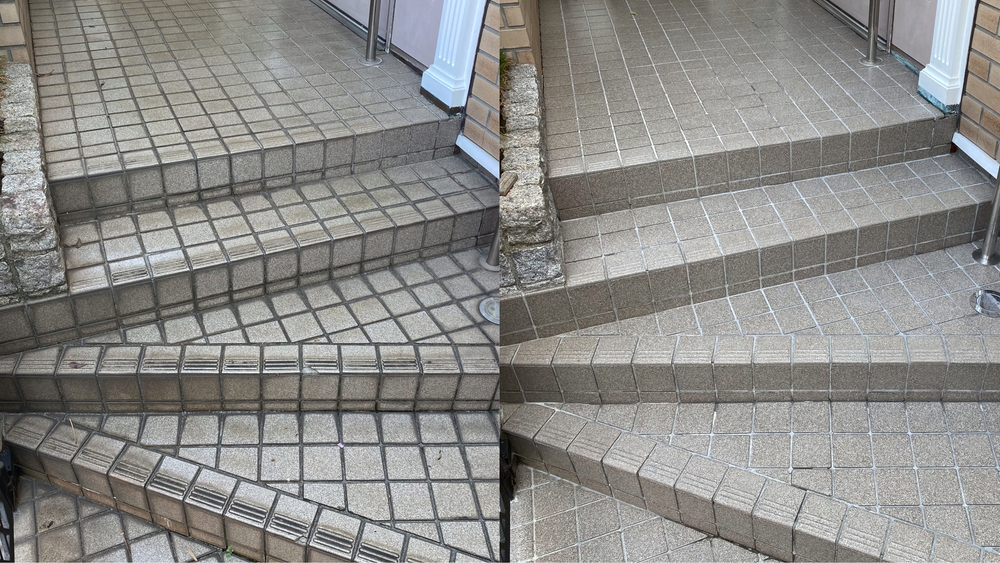Complete Concrete Cleaning

April 15, 2024
Complete Concrete Cleaning
Commercial concrete cleaning involves using specialized techniques and equipment to clean large concrete surfaces in commercial settings such as parking lots, sidewalks, driveways, and industrial floors. The technical aspects of commercial concrete cleaning are crucial to ensure effective cleaning while maintaining safety standards. Here's a breakdown of the key technical aspects and considerations involved:
Equipment
- Pressure Washer: A commercial-grade pressure washer with high PSI (pressure per square inch) and GPM (gallons per minute) ratings is essential for effective concrete cleaning. Gas-powered or diesel-powered washers are often preferred for their mobility and power.
- Surface Cleaners: These are attachments for pressure washers designed specifically for cleaning large flat surfaces like concrete. They help distribute the water evenly and prevent streaking or damage to the surface.
- Hot Water System: For tougher stains and grime, a hot water pressure washer can be used. The heat helps to break down grease, oil, and other stubborn contaminants more effectively.
Cleaning Agents
- Detergents: Commercial concrete cleaners or detergents are used to enhance the cleaning process. They are formulated to dissolve dirt, oil, grease, and mold without damaging the concrete surface. Environmentally friendly options are available to comply with regulations.
- Chemical Safety: Proper handling, dilution, and application of cleaning chemicals are crucial for safety. Protective gear such as gloves, goggles, and masks should be worn, and runoff should be contained and disposed of according to regulations.
Techniques
- Preparation: Clearing the area of debris, sweeping or blowing off loose dirt, and pre-treating stains can improve the cleaning efficiency.
- Even Pressure Application: Maintaining a consistent distance and angle while pressure washing ensures uniform cleaning without causing damage or leaving streaks.
- Rinsing: Thoroughly rinsing the surface after cleaning removes residual detergent and prevents streaking or discoloration.
Safety Measures
- Personal Protective Equipment (PPE): Operators should wear PPE including eye protection, gloves, and appropriate footwear to prevent injuries from high-pressure water and cleaning chemicals.
- Equipment Inspection: Regular inspection of pressure washers and accessories is important to ensure they are in good working condition and safe to use.
- Environmental Protection: Containment and proper disposal of wastewater to prevent contamination of water sources or damage to vegetation are essential. Using eco-friendly cleaning agents minimizes environmental impact.
Benefits of Commercial Concrete Cleaning
- Enhanced Appearance: Clean concrete surfaces improve curb appeal and create a positive impression on customers, tenants, and visitors.
- Safety: Removing slippery substances like oil and mold reduces the risk of slips and falls, enhancing safety in commercial areas.
- Longevity: Regular cleaning helps extend the lifespan of concrete surfaces by preventing damage from dirt buildup, staining, and corrosion.
Useful Links
Our Service
- Full Structure Pressure Washing
- Complete Concrete Cleaning
- Surface Restoration/Repair, and Sterilization
- Full Service Window Cleaning
- Drainage Cleaning and Jetting
- Heavy Equipment Washing
Contact Us
Share with Us

